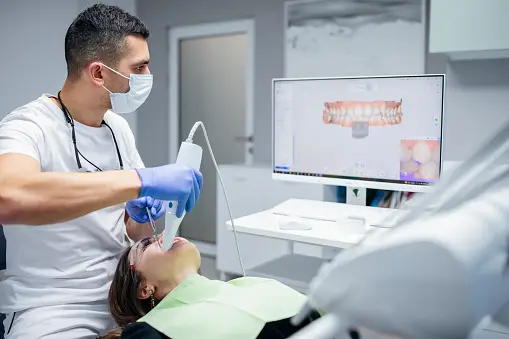
30 Aug What Are the Pros and Cons of Selling to a Corporate Dental Group?
Selling Your Dental Practice Isn’t An Easy Decision

Selling a dental practice is a decision laden with both professional and personal considerations. The reasons behind such a choice are varied and complex, often rooted in a desire for growth, financial security, or a change in lifestyle. However, it’s important to recognize that this decision isn’t an easy one to make. Let’s delve into some of the reasons why you might consider selling your dental practice and the challenges associated with such a significant step.
Pursuit of New Opportunities
One compelling reason to sell a dental practice is the pursuit of new opportunities. After years of dedicated service, dentists may find themselves seeking fresh challenges or a change in their professional direction. Selling the practice can free up time and resources, allowing practitioners to explore other interests or embark on ventures they’ve long dreamed of.
Financial Considerations
Financial factors play a significant role in the decision to sell a dental practice. Selling to a corporate dental group can offer a substantial financial windfall. The infusion of capital can provide dentists with greater financial stability, retirement funds, and the means to pursue other investments or endeavors. However, while the financial gains can be enticing, the decision should also take into account long-term financial planning and potential impacts on income.
Work-Life Balance
Maintaining a dental practice often involves long hours and substantial responsibilities. Many dentists reach a point where they seek a better work-life balance. Selling the practice can alleviate the demands of managing a business, allowing practitioners to spend more time with family, pursue hobbies, or simply enjoy a more relaxed lifestyle.
Evolving Industry Trends
The dental industry has witnessed significant shifts over the years, with corporate dental groups becoming more prevalent. Selling to such a group can provide access to advanced technology, marketing resources, and a wider patient base. Staying competitive in a rapidly evolving field might lead dentists to consider aligning with a corporate entity. However, adapting to new protocols and navigating potential cultural differences can present challenges.
Emotional Attachment and Transition Difficulties
A dental practice isn’t just a business; it’s often an extension of the dentist’s identity and legacy. Deciding to sell can be emotionally taxing, as it involves letting go of a practice that has been nurtured and built over time. Transitioning patient relationships and adapting to new working dynamics within a corporate structure can also be emotionally challenging.
Uncertainty and Decision-Making Pressure
The decision to sell a dental practice comes with inherent uncertainty. Dentists may worry about the future of their patients, staff, and reputation. Moreover, the pressure to make the right decision can weigh heavily. Selling a practice involves legal, financial, and logistical intricacies that require careful consideration and expert guidance.
While the reasons for selling a dental practice can be compelling, it’s important to acknowledge that this decision isn’t without its difficulties. The prospect of letting go of a practice, transitioning relationships, and adapting to change can create a mix of emotions. A thorough evaluation of personal and professional goals and a realistic understanding of the challenges is crucial. Ultimately, the decision to sell a dental practice should align with both the dentist’s aspirations and the well-being of patients and staff.

Pros of Selling to a Corporate Dental Group
The dental industry has evolved over time, and one of the notable shifts has been the rise of corporate dental groups. These groups, often backed by substantial resources, offer dentists an alternative to traditional private practice ownership. Let’s look at the pros and cons of both.
Enhanced Financial Offerings
Selling your dental practice to a corporate dental group can often lead to a lucrative financial offer. These groups have the financial backing to make competitive offers that encompass both the value of your practice and potential future earnings.
Reduced Administrative Burden
By aligning with a corporate dental group, you can alleviate the administrative responsibilities that come with running a private practice. From human resources to marketing, these tasks are often managed at a higher level, allowing you to focus more on patient care.
Access to Advanced Technology and Resources
Corporate dental groups tend to invest heavily in state-of-the-art technology and resources. This can enhance the quality of care you provide to your patients and potentially attract a larger patient base.
Professional Development Opportunities
Becoming part of a larger dental network provides unique opportunities for professional development. You can benefit from peer collaboration, specialized training, and exposure to a variety of cases.
Transition Support
Corporate dental groups typically offer comprehensive support during the transition phase. This includes guidance on legal matters, patient communication, and adapting to the new operational structure.
Positive Sentiment: Embracing Change for Growth
Selling to a corporate dental group offers exciting avenues for growth and collaboration within the dental industry.
Cons of Selling to a Corporate Dental Group
Loss of Full Autonomy
One of the primary drawbacks is the loss of full clinical and operational autonomy. Corporate dental groups may have standardized protocols that could limit your decision-making freedom.
Cultural Shift
Transitioning to a corporate environment can lead to a cultural shift. A more corporate-driven culture might replace the unique atmosphere of a private practice.
Patient Relationship Changes
Patients often develop strong bonds with their dentists. Selling to a corporate group might disrupt these relationships, impacting patient retention and loyalty.
Revenue Sharing
While corporate dental groups offer financial benefits, they also involve revenue-sharing agreements. You might receive a percentage of the generated revenue, which could potentially be lower than what you’d earn in a private practice.
Power Keyword: Challenges of Transition
Transitioning to a corporate dental group comes with its own challenges that practitioners must consider.
The Decision Is Up To You
The decision to sell a dental practice is a pivotal moment that profoundly impacts a dentist’s career, financial future, and personal life. It’s a choice that requires a delicate balance between aspirations and practical considerations, as well as a thorough understanding of the benefits and challenges that come with such a significant transition.
The allure of selling to a corporate dental group lies in the promise of enhanced financial opportunities, reduced administrative burdens, access to advanced technology, and a network of professional development possibilities. These advantages can open doors to growth, collaboration, and the potential to provide even higher-quality care to patients.
However, the decision isn’t without its complexities. The loss of clinical autonomy, potential cultural shifts, and changes in patient relationships must all be weighed against the benefits. Dentists must also consider the emotional attachment to their practice, the uncertainties associated with the transition, and the pressures of making a life-altering choice.
While financial incentives are often a driving force, the decision extends beyond the realm of dollars and cents. Dentists must evaluate their own values, aspirations, and long-term goals. The path they choose should align not only with their professional trajectory but also with their personal well-being and sense of purpose.
As the dental industry continues to evolve, the decision to sell a practice becomes both an opportunity and a challenge. It’s a chance for dentists to reshape their careers, explore new horizons, and embrace change for growth. Simultaneously, it’s a challenge that demands careful consideration, expert guidance, and a willingness to navigate the complexities of transition.
In the end, the choice to sell a dental practice is a deeply personal one. Dentists must evaluate the pros and cons with a discerning eye while keeping in mind the welfare of their patients, staff, and legacy. By embracing a comprehensive understanding of the implications and embracing their own values, dentists can confidently embark on a new chapter, armed with the knowledge to make an informed decision that shapes their professional journey for years to come.



Sorry, the comment form is closed at this time.